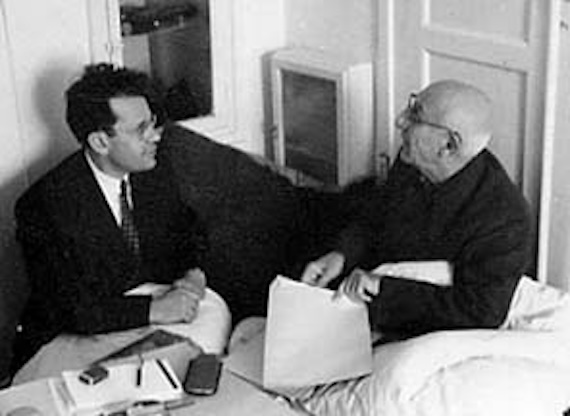Newark, Del. (Special to Informed Comment) – When I was very young, in my early teens, I remember that we always had radio Iraq on. I remember that my parents and especially my father used to listen to it on his German Grundig radio. At that time, I didn’t really understand or grasp much. As a teenager, I cared about boys and fun stuff. Then I grew up and I became aware.
In our household, Mosaddegh stood tall. His photos were everywhere. I knew how much my father admired him and looked up to him. Still, until I read more about the man, until I read his works, I didn’t realize how much he had impacted my life and that of others.
Secularism is a casually used term. But what does it really mean? Mosaddegh, believing in the separation of state and religion, grasped its essence. He also believed in the rule of law. In those times, the rule of law meant nothing in Iran. He advocated a free press even if that free press criticized him. He was an educated man who wrote his thesis at the university of Neuchâtel in Switzerland, which in 1914 was published as Sources of the Rights of Muslim. (Sources du droit Musulman) in 222 pages.
Mosaddegh came from nobility—he was a member of the Qajar dynasty—but he went against that nobility. He not only advocated democracy but went against his own tribe.
He stood up to corruption. He stood up to power and thus became the target by Reza Shah and Mohammad Reza Shah.
He was imprisoned by Reza Shah and later by Mohammad Reza Shah. Both men feared him.
One of the few politicians of Iran who stood up to corruption, he also stood up to the British rule. He believed that the U.S. would support him in his effort to nationalize the Iranian oil. Alas, the Americans didn’t.
A British politician said, “Our policy, was to get rid of Mosaddegh as soon as possible.”
After the Coup, Anthony Eden, the then British foreign minister, on his yacht in the Mediterranean said, tonight I can sleep easily.

Mossadegh and his lawyer, Nosratollah Amini in Ahmadabad
Mosaddegh believed in his people. He was tried for treason, spent 3 years in a military prison and then spent the rest of his life exiled in Ahmadabad.
Seventy-one years ago, on 19 August 1953, a coup was organized against him by MI6 and the CIA and their paid Iranian agents. After the Coup, the men and the many unknown women around him who went to prison included my own father. They were all individuals of high integrity. A rare phenomenon these days.
May his ideals and ideas become an inspiration for future generations of Iranians who wish to build a nation based upon the rule of law and democracy in their country.


 © 2026 All Rights Reserved
© 2026 All Rights Reserved